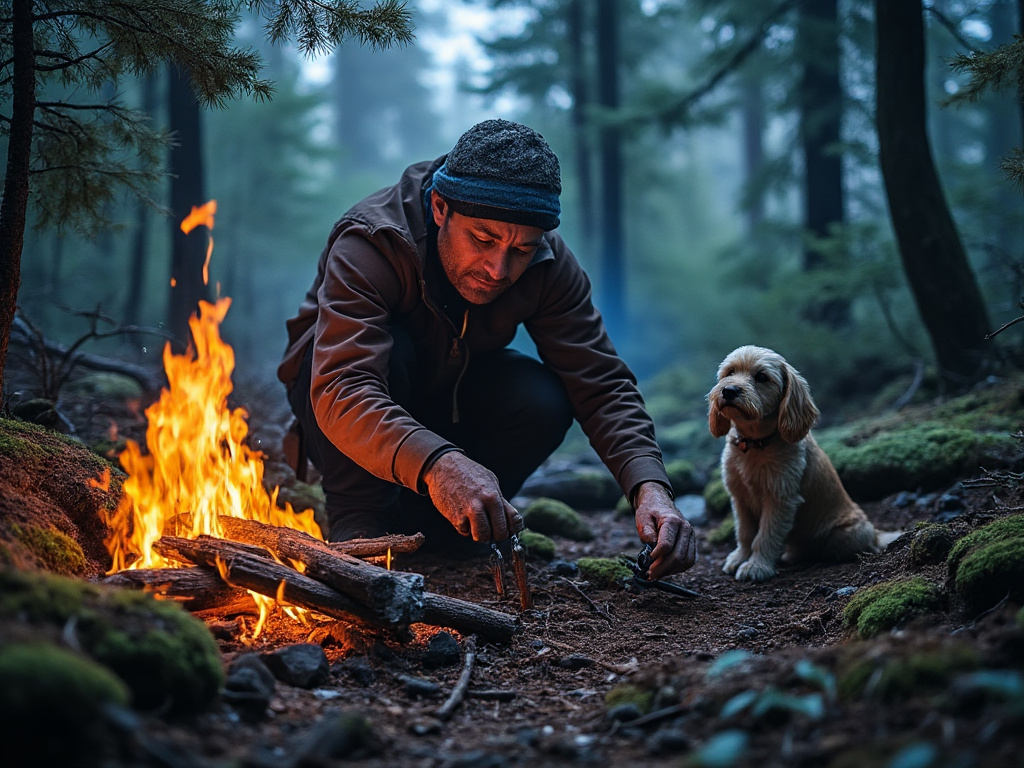
Here are some basic survival skills that can be in various emergency situations:
Shelter Building
- Find or Build Shelter: Protect yourself from the elements. Use branches, leaves, and debris to create insulation. In urban settings, look for abandoned buildings or construct something from found materials.
- Insulation: Use leaves, grass, or any insulating material to keep warm or cool.
Water Procurement
- Finding Water: Look for rivers, streams, or lakes. Morning dew, plants, and certain types of trees can also provide water.
- Purification: Boil water for at least 10 minutes, use purification tablets, or filtration systems if available. In a pinch, solar distillation or makeshift filters from cloth, sand, and charcoal can work.
Fire Starting
- Fire Building: Gather tinder (small, dry materials), kindling, and fuel wood.
- Techniques:
- Flint and Steel: Strike to create sparks.
- Fire Plough: Rub wood together to create friction.
- Lens Method: Use magnifying glass or similar to focus sunlight.
- Battery and Steel Wool: Connect the terminals with steel wool to ignite it.
Food Gathering
- Foraging: Learn to identify edible plants, berries, and nuts in your environment, but also learn what’s poisonous.
- Hunting and Trapping: Basic snares, fishing with improvised gear, or using a makeshift spear or bow if possible.
- Cooking: Know how to safely cook and preserve food without modern tools.
Navigation
- Natural Navigation: Use the sun (rises in the east, sets in the west), stars (North Star for northern hemisphere), or landmarks.
- Compass: If you don’t have one, you can magnetize a needle or wire to float on water for a makeshift compass.
First Aid
- Basic First Aid: Know how to treat wounds, recognize signs of infection, set splints for fractures, and perform CPR.
- Natural Remedies: Some plants can be used for medicinal purposes; however, accurate identification is crucial.
Signaling
- For Rescue: Use fires (smoke during the day), mirrors, or shiny objects for signaling. Three of anything (fires, blasts on a whistle) is a universal distress signal.
- Ground-to-Air Signals: Create large, contrast signals on the ground that can be seen from above.
Psychological Resilience
- Stay Calm: Panic reduces your ability to think clearly. Use breathing techniques or mindfulness to stay centered.
- Hope and Purpose: Keep a positive outlook. Set small goals to achieve daily.
Tools and Weapons
- Improvise Tools: Use stones to create sharp edges for cutting, or shape wood into tools or weapons.

Clothing
- Adapt: Use what you have to protect from cold, heat, or insects. Layer clothing, use leaves or grass for insulation.
Remember, practice makes proficient. It’s beneficial to practice these skills before you find yourself in a survival situation. Also, local environment greatly influences which skills are most relevant, so tailor your survival strategy to your specific context.

